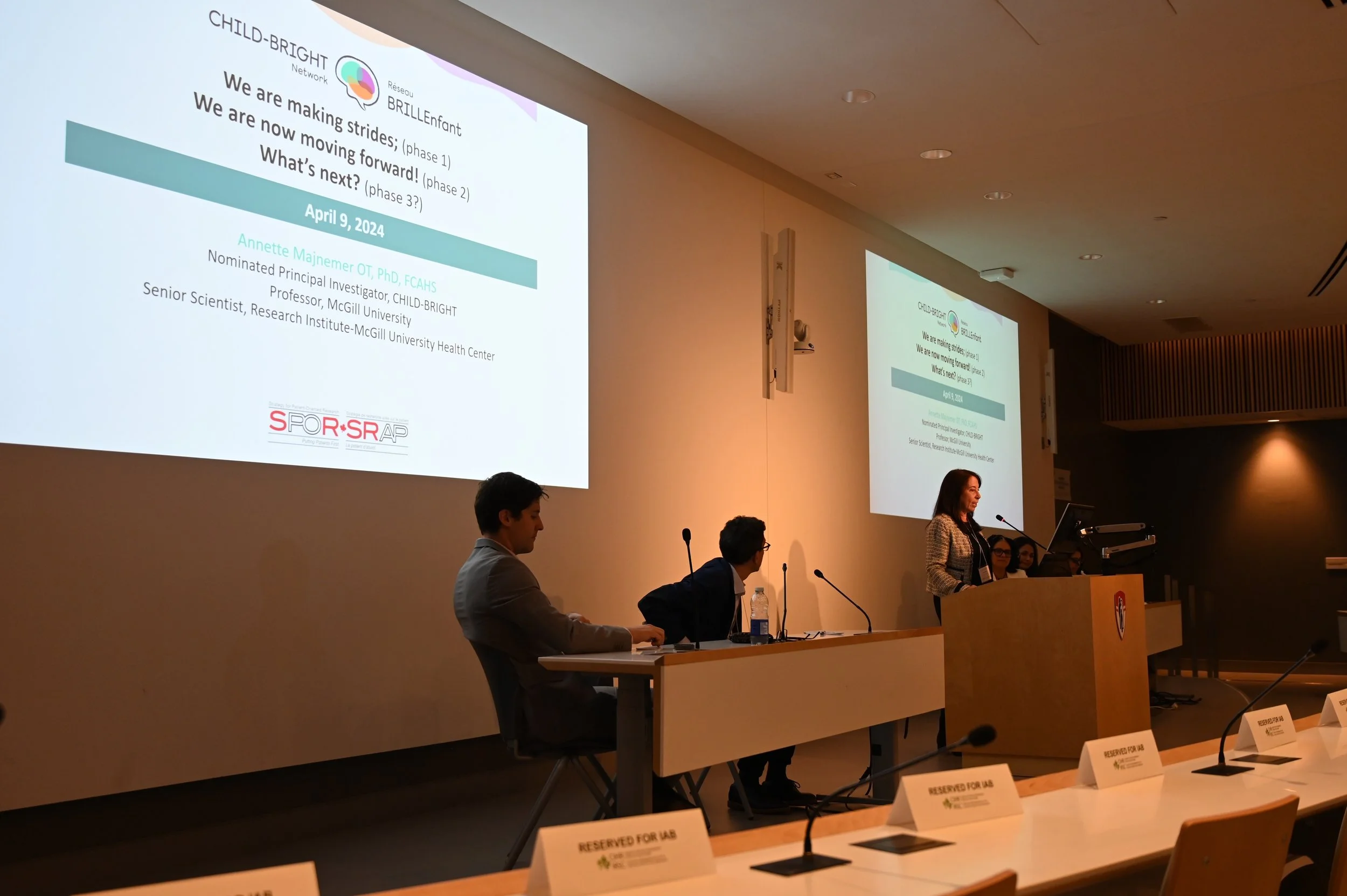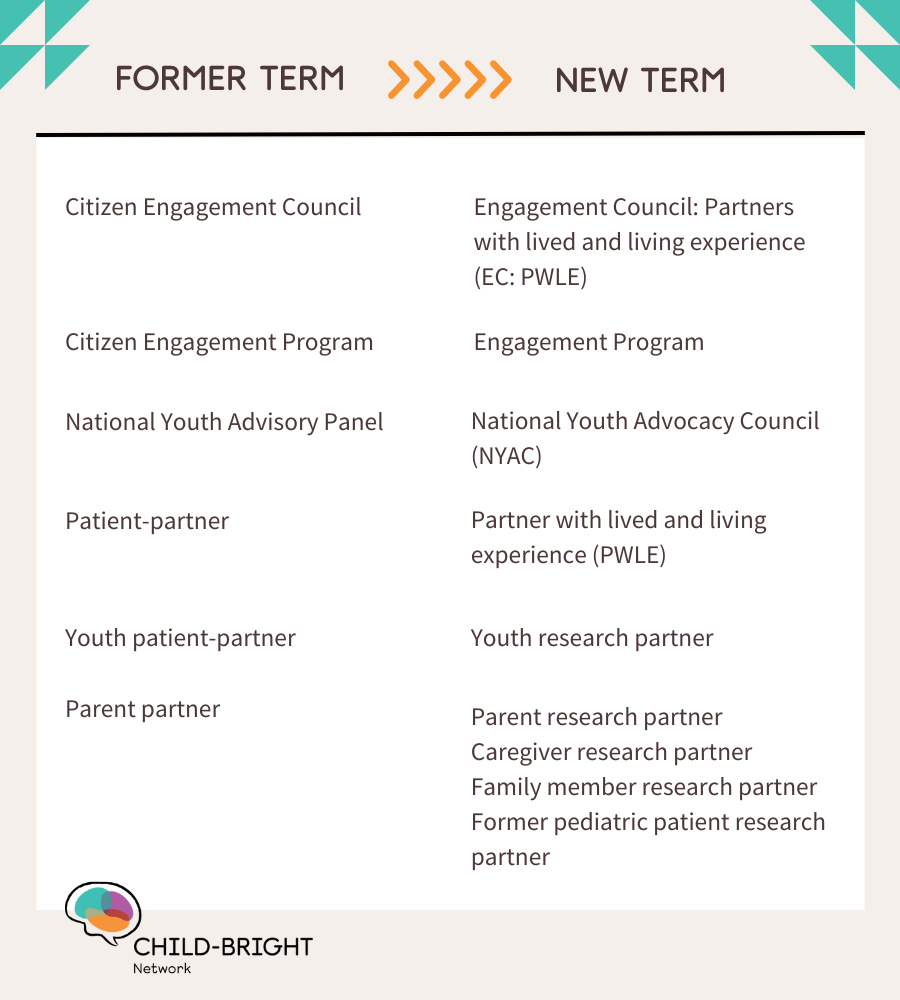What kind of innovations can emerge from research conducted in networks? Why would you do child health research as part of a network? What perspectives do different key players bring to research networks – and how do these members benefit from their participation?
These were some of the questions at play on April 9, 2024, when partners with lived and living experience (PWLEs), community organizations, trainees, and researchers at all career stages convened at a research community engagement event with the Canadian Institutes of Health Research Institute of Human Development, Child and Youth Health (CIHR-IHDCYH) and their Institute Advisory Board (IAB). The IAB meets twice a year in a different location across Canada and reserves time to exchange with local child health researchers.
This time around, the Research Institute of the McGill University Health Centre (RI-MUHC) invited the IAB to meet RI-MUHC researchers who are leaders of Canadian child health networks for “Connecting the Dots: Learning from Research Network Innovation”, to share their successes and challenges in doing research as part of a national network.
Christine Chambers, Scientific Director of CIHR-IHDCYH, highlighted the importance of child health research networks in driving innovation, and the focus on interdisciplinarity and collegial information sharing to increase impact, as major strengths of the RI-MUHC. In her closing remarks, Rhian M Touyz, the Executive Director and Chief Scientific Officer of the Research Institute of the McGill University Health Centre, indicated how proud she was of the RI-MUHC researchers who are successfully leading Canadian child health research networks.
Founded in 2016 and now in Phase 2 of its evolution, CHILD-BRIGHT was well positioned to help bring these discussions forward in a multi-actor context. “In the past nine years, we’ve come to understand the importance of networks in improving patient-oriented research outcomes,” said Annette Majnemer, CHILD-BRIGHT's Nominated Principal Investigator and Scientific Co-Director “We’ve found the network model allows us to authentically engage with key partners – like children and youth with brain-based developmental disabilities and their families – whose perspectives might not be considered in research otherwise.”
“Connecting the Dots” brought some of those perspectives to the fore, first with a speed networking event, where PWLEs, trainees, community members, and early career researchers discussed the value they brought to their network and what kind of benefits they saw as a result.
Annette Majnemer participates in a panel discussion featuring child health networks and led by RI-MUHC researchers.
This was followed by a panel discussion featuring child health research networks and led by researchers at the RI-MUHC Child Health and Human Development Program:
Annette Majnemer, CHILD-BRIGHT’s Nominated Principal Investigator and Scientific Co-Director
Meranda Nakhla (Building CAPACIty for pediatric diabetes research and quality improvement across Canada)
Maryam Oskoui (INFORM RARE)
Mayada Elsabbagh (Transforming Autism Care Consortium and the Canadian Neurodevelopmental Research Training Platform)
Marc Beltempo (Canadian Neonatal Network)
Over 130 people registered to hear these child health network researchers speak to the different stages of network growth as well as key accomplishments and challenges. On behalf of CHILD-BRIGHT, Annette shared some of the strides made in patient-oriented research since the network’s beginnings in 2016. “Our membership now includes 97 PWLEs, and we have developed a wealth of tools and resources to meaningfully engage PWLEs in research,” she said. “It’s exciting to be able to share these learnings with the child health community.”
One of the key challenges for CHILD-BRIGHT, meanwhile, is ensuring its ongoing sustainability – which is why our Legacy and Sustainability Taskforce is hard at work in developing mechanisms to sustain the gains of our network after Phase 2, Annette shared.
The RI-MUHC was the ideal host for this gathering, she emphasized: “Not only is it home to the CHILD-BRIGHT Network’s headquarters, but the RI’s dedicated Child Health and Human Development Program brings local researchers together to increase cross-fertilization between disciplines and maximize research impact, all in the service of brighter futures for children and youth across Canada.”
Thank you to all CHILD-BRIGHT members who helped co-organize and/or took part in this event: Melanie Bergthorson (Jooay project clinician-partner), Roberta Cardoso (KM Program Policy Hub), Mayada Elsabbagh, (KM Program Committee member) Jessica Hanson (trainee) Ebrahim Mahmoudi (trainee), Annette Majnemer (PI), Steven Miller (PI), Linda Nguyen,(trainee), Tatiana Ogourtsova (early career researcher), Keiko Shikako (KM Program Co-Lead and Jooay project PI), and Alix Zerbo (KM Program Information Officer).









